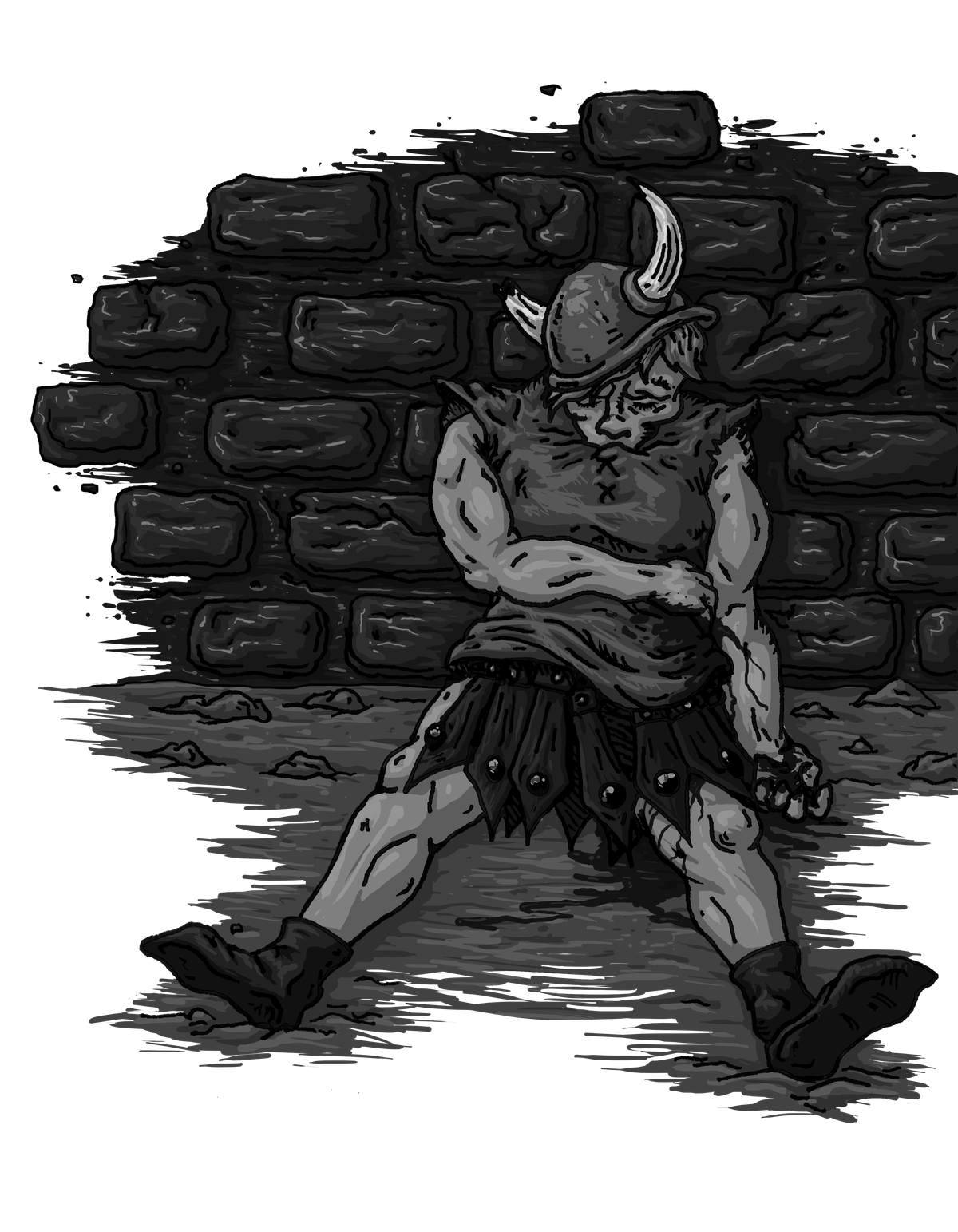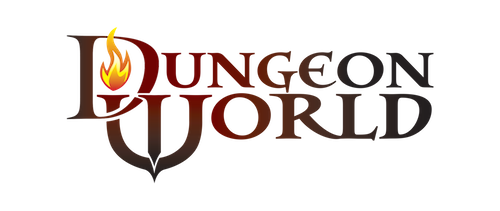The Problem with Hit Points

With Dungeon World 2 on its way, its two designers would like to share previews, updates, and “behind the scenes” looks at the game development with the community, so they can better understand the decision-making process behind it. Here is the fourth of many such blog posts.
Before we sat down to write down any actual design, Spencer & I spent October & November last year getting ourselves re-acquainted with the original Dungeon World (OG DW). Although we didn’t discuss it as such, I think the spirit of this endeavor was simple: to look for what we loved in OG DW and try to preserve it in our version.
In my case, I made use of this opportunity to re-read the book from cover to back while taking extensive notes about my 2024 reaction to all of its choices, from actual game design to things like layout, art, clarity of the text, promises kept—and lost—and many others. It was here that the problem with hit points (hp) first raised its ugly head.
Before we can go there, though, a necessary clarification. Game design is highly subjective, so what we may consider and/or agree upon as problematic/inefficient/inadequate may be somebody’s—even your!—favorite mechanic. This isn’t revealed truth but an honest and transparent presentation of our ideas & design process, we hope. With that out of the way, let’s get into the meat of today’s topic. And, to do so, let’s rip off the band-aid immediately, shall we?
Dungeon World 2 won’t have hit points (hp) or damage dice.
The immediate question, of course, is why. Why change such a recognizable mechanic from OG DW? Why “rocking the boat” out of the gate, unnecessarily so, some may say?
Because, from our perspective, hp doesn’t fit Powered by the Apocalypse (PbtA) design.
Our vision of what makes PbtA such a great design philosophy is multifaceted but, in this case, the core of it could be summarized thus: PbtA is all about creating, sustaining, and pushing “narrative” (i.e. dramatic) momentum.
Every move is designed from the core principle that it should be directly derived from the fiction preceding it—in other words, the “trigger”—and return to said fiction as soon as it’s mechanically resolved. The most important aspect here is that every move should meaningfully change the fiction. If a move doesn’t, it needs refinement. In essence, it isn’t serving its purpose. Moves aren’t skill checks. Moves appear when the narrative changes; they hail big changes and produce them.
So, let us use a classic example from OG DW fiction. A PC swings an axe at an orc warlord. They trigger hack & slash (h&s). They roll the dice and get a 10+. They do 6 damage to the orc’s hp and avoid the warlord’s retaliation.
How’s the narrative meaningfully changed in this case? What’s significantly different from before the move was triggered til after it was resolved? Very little. Maybe hack & slash doesn’t make full use of hp narrative potential.
What about volley? Basically the same thing and, just like h&s, there’s an option to avoid changing the fiction too much (“deal your damage to the enemy and avoid their attack” and “you have a clear shot—deal your damage”). Defend? The Cleric’s cure light wounds? One of the uses of The Bard’s arcane art? Yup. All the same. Change this number—hp—up or down a little bit, but not enough to produce a meaningful change in the fiction.
We can infer, then, that the problem is not with OG DW’s overall design, no.
The problem is with hp.
As a game mechanic, hp are deeply undramatic. They’re a way of modeling a character's relative health in an environment that cares about careful accounting of such things. What we usually refer to as a simulationist game because they, well, attempt to model—or simulate—a situation/“reality”.
Is OG DW a “simulationist” game? Maybe. Are PbtA games great at being simulation engines? Hell, no!
As probably the earliest D&D players in the 70’s that wanted to “tell a story” probably quickly discovered, we’ve arrived at an inevitable conclusion: the only hp that matters, dramatically speaking, is the last. If you lose that one, the narrative changes. You’re either dead or about to. Characters need to react to that.
Before that last hp? All the procedures are mere accounting. A few points up. A few points down.
As I said in my previous blog post, I believe we still haven’t seen the best fantasy PbtA game. One of things I meant by that is I don’t believe we’ve seen the best marriage of PbtA design philosophy and fantasy fiction. One thing both share? No hp in sight. Getting harmed is only brought up when it actually changes the fiction. When it’s dramatic. So that’s why we’re not using hp or damage dice in DW2. We believe those mechanics to be incompatible with a great PbtA design inspired by fantasy fiction.
Our answer may not be surprising, but our implementation may give you something to think about.
You’ll have to wait until Friday to learn about that, though.
Until next Tuesday,
Helena
